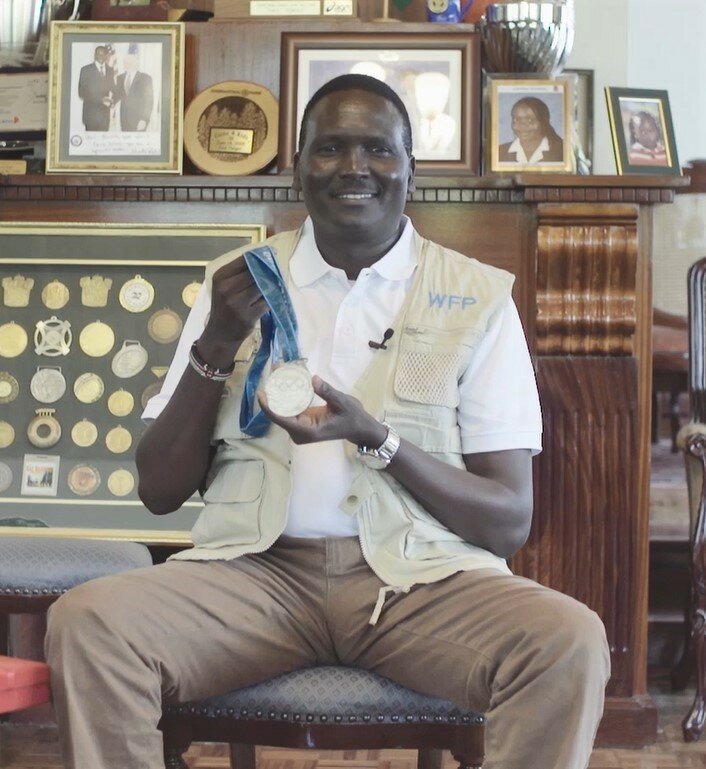How school meals fed a future Olympian
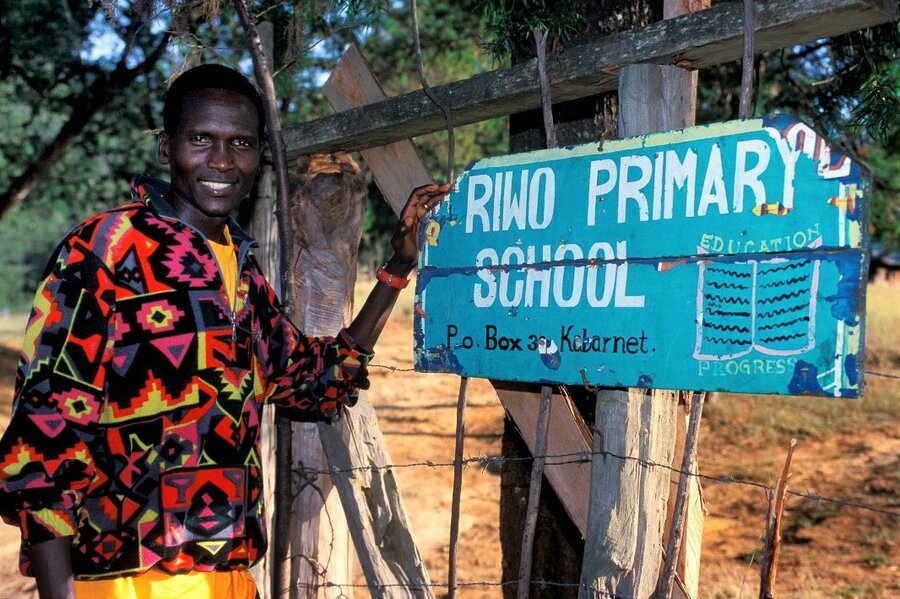
Growing up in northern Kenya, Paul Tergat and his family often lacked enough food for even just one simple meal a day. As a result, he rarely attended school: he just didn’t have the energy to make the three-mile journey there from his home in the drought-prone Baringo county. When he did find his way, it was difficult for him to concentrate in the classroom on an empty stomach.
But in 1977, Paul’s life changed forever. The World Food Programme (WFP) began distributing school meals in his county. School meals help to improve children’s nutrition, ability to learn and life chances, while giving poor families an incentive to send their children to school and gain an education.
“I want to say that WFP’s school feeding programme changed my life, and I am sure it has changed, if not millions, thousands of other young people. It is still doing the same, both locally within the nation and globally," says Tergat. "I believe that is something we need to cherish a lot.
“During the time of our fathers and great grandparents, they had wisdom, but they did not go to school and people could cheat them when selling animals. We were able to be in class to study longer, concentrate more, contribute more in the class and be able to enjoy and interact more. And because of that one meal a day...everything else has been changed."
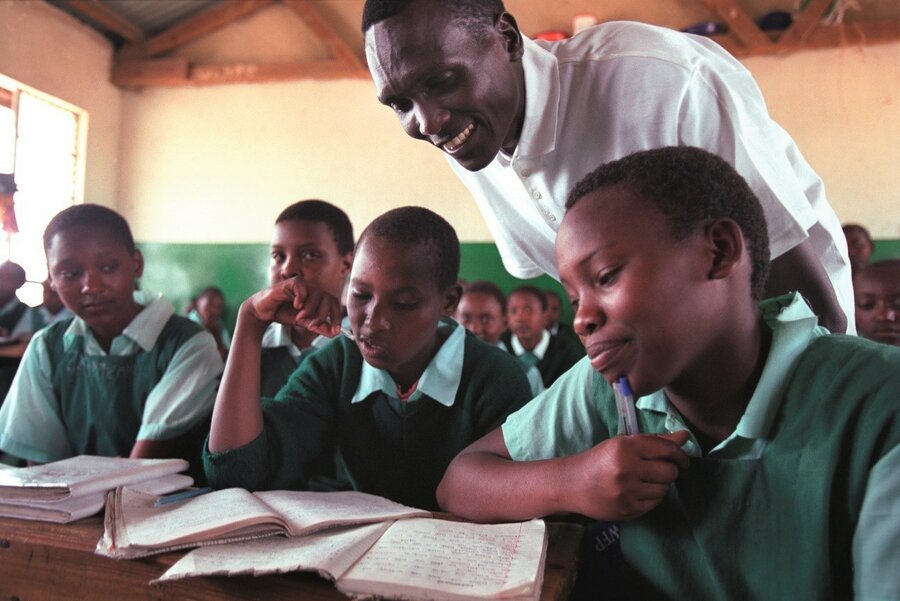
The promise of these meals encouraged Paul, then only 8 years old, to go to class at the Riwo Primary School. Thanks to the nutrition provided by the school meals, Paul would eventually work up the strength and energy to run the three-mile route. Every day he ran, becoming faster and stronger with each session.
“The school feeding programme really played a major role in who I am today,” says Tergat. “I was able to get stronger.”
Those runs proved to be remarkably significant later in life, a precursor to an incredible change of fate. Ten years later, Paul won two Olympic silver medals for the 10,000-metre competition — one in 1996 and one in 2000. In 2003, he set the world record at the Berlin Marathon. Two years later, he won the New York City Marathon in the closest finish in the race’s history.
The school meals programme in Kenya has evolved over the years since Tergat graduated, and is now delivered and funded by the Government of Kenya, as an integral part of a commitment to education for all.
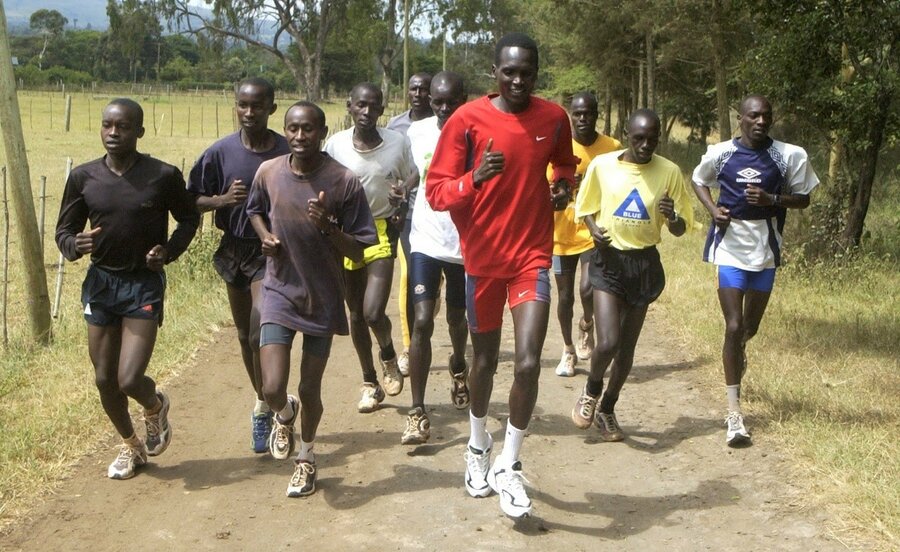
WFP remains involved, providing technical assistance and capacity strengthening support, such as training for Government staff and help with digitizing school meals records. More recently, WFP helped the Government to provide a take-home ration pack for students, when schools closed due to the COVID-19 pandemic.
“Education is critical and should be made available to everyone,” said Tergat, noting that school feeding is key to this goal, as it raises motivation for children to stay in school and continue studies.
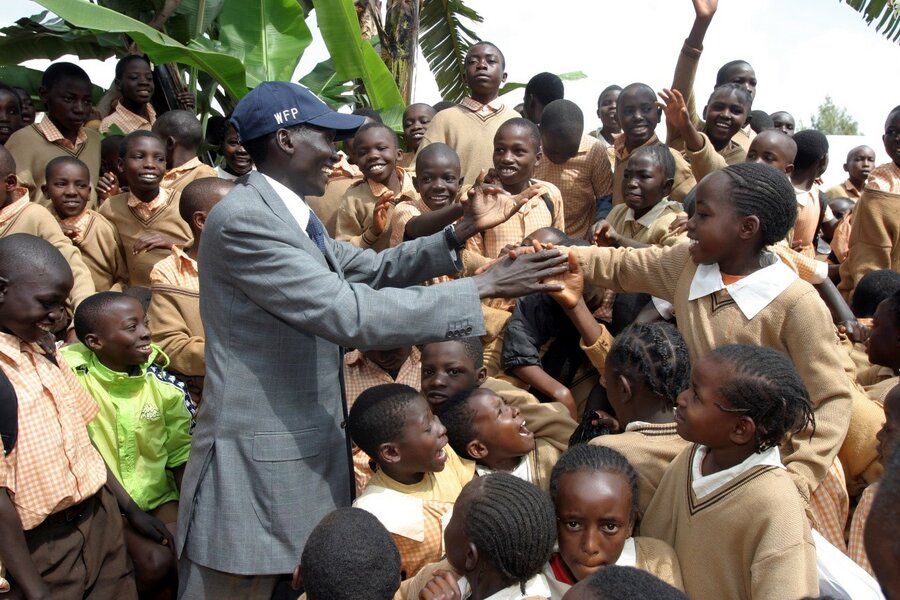
Paul is a longstanding supporter of WFP and has travelled the globe to share his inspiring story with children in the world’s poorest classrooms.
“Every child has a gift and potential within us," he added. "If we can lend a hand to support them, they can discover their talents and change the world to be a better place.”
